- Published on
Mental Health in Web3
- Authors
- Name
- Malicious Sheep
- @malsheep56
- Name
- stu
- @stusontier
- Name
- Surfingthedarkness
- @SurfTheDarkNFTs
- Name
- The Bad Lament
- @Thebadlament
- Name
- Synkitty
- @SynkittyArt
mental health and safety tips for anyone working in digital art communities
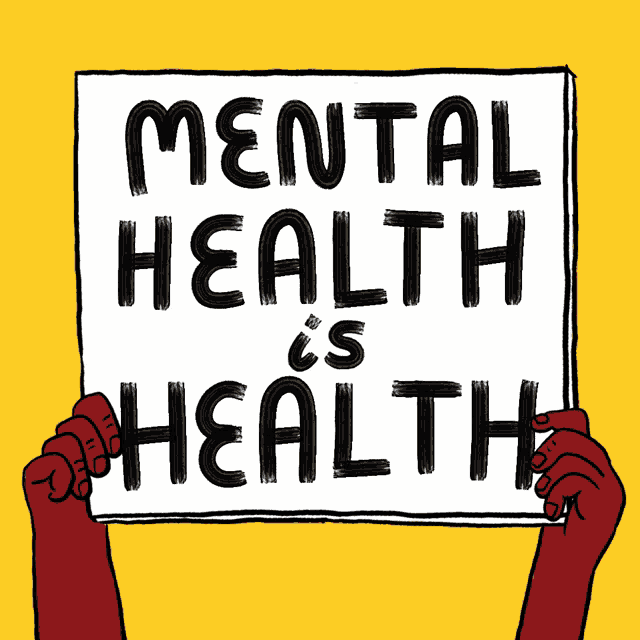
Teia is all about community, and we want to look after ours! From the stress of promoting or selling our work to the demands put on us by ourselves or others, it is important to prioritise our health and mental wellbeing when we create and engage! This article puts together Teia's Twitter thread series on mental health and safety specifically for artists, collectors and devs working in the NFT area and interfacing with twitter, discord communities with collectors, artists and devs.
Table of Contents
- Part 1: Under Pressure
- Part 2: Who am I, really? - Imposter Syndrome, self worth, recharging and breaks.
- Part 3: Bad Actors, Bullying, Harassment and Unreasonable Expectations
- Part 4: Toxic Environments and how to keep yourself safe
- Part 5: Social Manipulation and Scammers - Tips for how to DYOR and staying safe in web3
- Part 6: Self Care, Burnout and Helping Others
- Part 7: Vulnerable Communities and Being a Good Ally
Part 1: Under Pressure

From the stress of promoting or selling our work to the demands put on us by ourselves or others, it is important to prioritise our health and mental wellbeing when we create and engage! The fear of missing out on opportunities and feeling the need for constant engagement can add to the pressure. Creatives make work that bares the soul and they share that work with the world, looking to connect and communicate. This is a particular kind of vulnerability that can take a toll on mental health. We want to show our work, and in a marketplace it's great to sell. But either way it’s necessary to gain visibility, which doesn’t come quickly for most. Many of us are seeing reduced interaction and sales, and it is easy to get discouraged.
To those who rely on selling artwork for their income, the pressure to sell can mean putting food on the table, housing, medication - or not. This pressure can motivate but it can alone be a major stressor particularly if art is the primary income. The pressure to constantly engage on social media can have a negative impact. As artists, we want to share our work far and wide, but with dozens of apps and accounts to manage, engaging for visibility can itself be a full time job. Like real world relationships, there are no shortcuts to gaining artist friends and growing a collector community, so be aware that you’ll put in a lot of time and effort. At the same time, it's easy to fall down a hole of engagement, spending more time than you have.
Making a Time Management Plan for yourself can help you regulate and balance how much time you spend on each component of your overall art practice. It is important to reduce the risk of overwhelm.
Consider scheduling time for:
- Social media apps like Twitter, Discord, Instagram
- Reading and writing DMs
- Applying to open calls and events
- IRL duties like work, family, pets
- Self Care
- Rest and decompression
Don’t forget that time for daydreaming! Many artists benefit from time to let thoughts drift! Rest is incredibly valuable, but it is often a neglected process. Good rest makes us more effective and reduces stress, allowing our minds and bodies time to repair. The old adage "An Artist must suffer for their art" is not true. They must challenge themselves, yes, but suffering is not required. Artists are often most effective long term when well rested, fed and secure. The vulnerability involved and exploration of often difficult themes opens artists up to critique. Critique can be healthy and make work more impactful, giving the artist practice in finding the language to describe concepts in a way that connects with the audience.
Encourage smaller groups for casual peer to peer critique, in the form of constructive criticism, advice sharing and friendship building. As you progress, you can seek group critiques that are more formal and blunt to challenge you. Take your time exploring new friendships and communities, quality over quantity. Try to remember: Art is not a sprint, it is a marathon. Pace yourself and prioritise your wellbeing 💖
Part 2: Who am I, really? - Imposter Syndrome, self worth, recharging and breaks.

Am I good enough? Should I be in this space? Do I belong? A good artist is curious and questioning. We might wonder about the meaning of a work, whether others will understand it, like it, collect. Working as an artist also means dealing with doubt and self-worth. Social media can amplify the impression that others are better artists, marketers of their work, are getting more sales and opportunities. With current fragmentation of apps and engagement, this can feel more exaggerated. Ideally, you’ll feel good about your work (or critique it and evolve) on its own terms, but comparing to others can lead to Imposter Syndrome, and an over-critical spiral. (Imposter Syndrome is a term that describes the feeling of not belonging in a space or feeling like you are faking it) Having self doubt that talents, skills and accomplishments have value, as well as the fear of being discovered as a supposed fraud.
It is estimated that 70% of people will experience this at some point in their lives, and it occurs across many populations. Marginalised people of all kinds often experience this in spaces where there are few if any peers or mentors. Trying to push through when you are feeling overwhelmed can lead to feeling burnt out, which can last for a few days, weeks or months. Listen to your body's signals before you reach a state of crisis and your body forces you to stop. Try to be alert to such feelings, reach out to others you trust. Maybe you need to talk or vent but if you do it publicly, be aware of latent anger (from yourself and others) and how it may affect relationships. Find ways that work to help you recharge. Clinical "Burnout Syndrome" is an emotional, mental and physiological state of crisis. If you suspect you are in crisis, seeking medical attention as soon as possible is important to ensure you have the support you need.
Maybe you need to scale back on projects, say no to some commitments if possible and set healthy boundaries for yourself. Interacting with nature and animals is good for mental health, take time to be present in nature if you are able to. If you have health or disability related needs, it is important to take these into account when planning. Look for related support networks to share labour, and understand your own capacity. If you feel social media is too much, take a break - a day or a week. Worried about loss of engagement? Schedule some tweets if you can, with tools like Tweetdeck to keep your engagement active while you rest.
Part 3: Bad Actors, Bullying, Harassment and Unreasonable Expectations

As with every community, there will be individuals who do not have your best interests at heart. As an artist you are carving a unique path, which may or may not be clear. You might have particular values that are reflected in your work. This work is then meeting people with different views and values. Critique, curation and collection are places where your work interfaces with others. They may not have your best interests in the forefront or might have very different agendas. They might see your work in a different context or even misinterpret or misrepresent it. Collectors might demand work that doesn’t fit with your values or way of working. They may impose other attempts at control, such as trying to reset your pricing, get deals, ask you to produce less or more or only sell to certain groups. Curators may want to place your work in contexts you don’t like. Or suggest cropping or other interventions on the work.
As an artist it's important to know what is valuable to you: What you might compromise on and what are bottom line concerns are completely up to you. You might agree to a special price for a long-time collector or someone who has helped in other ways, but you’re not bound to this.
Above all else, don’t feel pressured into something that feels wrong. As with many things, having some time to consider a decision or response can be invaluable. Recognise that bullying and demands are not of your making. Whether, when and how you respond to requests and demands is totally up to you. It is your voice and your creativity, those who resonate with you and your work and show you respect will give you space to decide on your own.
Part 4: Toxic Environments and how to keep yourself safe
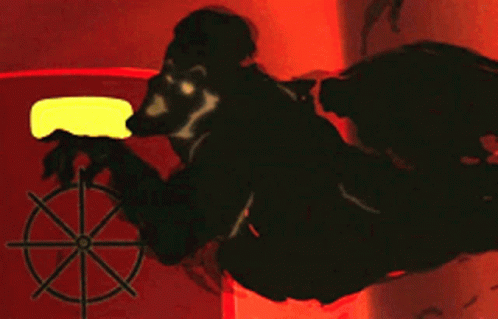
Being part of a community with a shared ideal, medium, location or identity can feel incredibly validating. Socialising in a support network can help you feel less alone in the vastness of the world. It is important to be safe.
Discords and other private messaging groups can be fun and useful places to find community, share work etc. but the people who run these spaces have to be responsible with the power they hold. Unfortunately, not every space is a safe one. Closed spaces and exclusive clubs are where bullying and toxic control can thrive. One mechanism for abuse and control is to isolate people. Be alert for red flags. The fear of being excluded, cast out or demeaned can reduce the calling out of harmful behaviour, particularly when the access to a group or space is controlled by a single person. Unchecked abuse can grow, and others can be drawn into such behaviour. Spaces where like-minded people hang out can sometimes become single-minded. Those who act differently, disagree or raise concerns can be shunned or threatened with expulsion. Keep alert if there are attempts to close down alternative viewpoints and discussions that are not harmful.
Overlooking bad behaviour can make others complicit, and others vulnerable. Be aware of the potential for harmful or dangerous behaviour, and if something doesn't feel right, talk with others. We all want to succeed and don't need the added stress of a dangerous or dysfunctional group. There are many communities and groups, find ones that are safe, or form your own!
Part 5: Social Manipulation and Scammers - Tips for how to DYOR and staying safe in web3
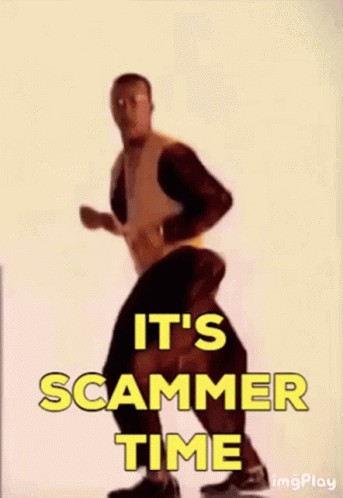
Scammers are rife in crypto and NFT spaces. That means being less trusting, especially as some scams specifically target artist vulnerabilities. Scams and marketing share similar tactics, sometimes it can be difficult to tell them apart.
Firstly, be overcautious with all your passwords. Use multiple, long passwords and a password manager to remember and insert them. Never reveal a password or your pass phrases to anyone, ever. Even mods or ‘official support’ people. Always be wary of links sent by email, DM or any other way. And make it a practice to stop and consider, before acting on any request or demand to act, especially if it asks you to act quickly or to keep contacts private.
Scammers get around your defences by creating or acting on your FOMO, panic and stress. It might be an urgent request to make work for them (accompanied by a malicious file to open); or a response to your request for wallet support (where they redirect you to a fake discord or a dodgy instagram account)
Windows users, make sure file extensions are not hidden. Files like docs or pdfs could actually be highly dangerous executable files. eg: you might see copyright-infringement.pdf. In reality this might be copyright-infringement.pdf.exe These files might be sent by DM, email, wetransfer, dropbox etc and often are not picked up by anti-virus. If you suspect something is a scam, ask someone else you trust. Check whether others have dealt with the same person. And to repeat - never share passwords or passphrases with anyone.
Remember the seven Fs that make you act quickly without critical thought; Fear, Finance, Failure, Flattery, Friend, Fast, Famous. If you are having an adrenal response, give some time before engaging so you can be sure to gather information and question the situation. If something looks suspicious, check in with others from different circles to gather opinions. Stay safe out there!
Part 6: Self Care, Burnout and Helping Others
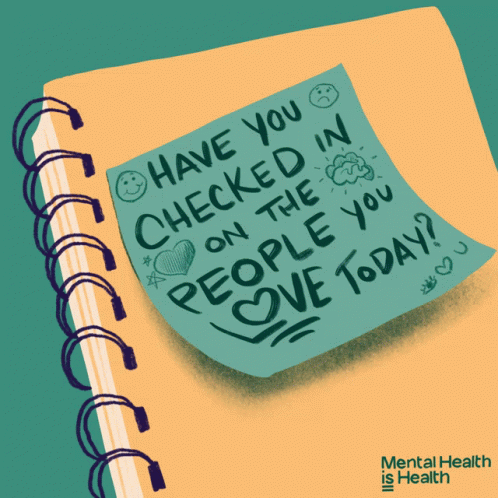
Checking in with yourself and your friends should be something done regularly with awareness.
Burnout can happen for many reasons and often stems from external or internal stress and overcommitment. Signs of burnout include not being able to engage or find interest in usual things. Artists might feel a reaction against making new work or a block on new ideas. When making art, it may not be possible to just ‘push through’ a block. It might mean recuperation is necessary or just some time off from the pressure of always putting new work out there. Allowing time for your mind to wander can help spark new ideas.
Use some downtime to consider working on other aspects of your art - reassess old work or collate it into a simple book or an online gallery (or do it with your collection). Organise your tools - physical or digital, and your artwork folders/storage. Make backups. Go to galleries or read about other artists. Of course, there will be times when you’re fine but notice others are having a hard time. This can be tricky for both people; often just being there to listen might be your role. Be compassionate but not intrusive. Perhaps they need to be heard or need space, but don’t force your advice or trivialise their concerns. It can be hard to communicate difficulties. Remember that tweets and typed comments are not always the best articulation of what is going on for someone, especially if you don’t share a common language. Be aware of your own capacity to offer help.
Consider making a notebook or artists workbook where you can write or type creative ideas, thoughts, etc. This can be useful both for future work that you don’t currently have time or energy for, and for personal responses to the work of others. You can choose how private this should be.
Part 7: Vulnerable Communities and Being a Good Ally
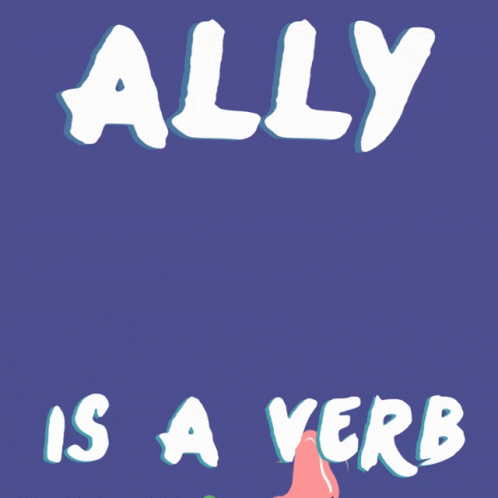
Some communities are more vulnerable to targeted scams, hate speech, sexual harassment and bullying: Marginalised communities can come in many forms based on gender, sexuality, ethnicity, language, region, age, health, disability, neurotype, class, and trauma for example. Intersectionality plays a part too, multiple identities can mean multiple barriers or harms. Listening and believing people who share an experience is important, even if you can't possibly understand their experiences. Compassion and human understanding is needed. If you have capacity, being a good listener can make all the difference for someone.
If someone calls you out for harmful behaviour - regardless of your intentions - take some time to educate yourself. Our human reaction is to defend ourselves, but we all are trained by society with inherent biases and stereotyping that affect our perception of and reaction to others. Humans are messy, we make mistakes and cause harm in ways we are unaware of. There is privilege in being unaware, and we should use whatever privilege we have to educate ourselves and uplift one another when we can. Sometimes we don't have the language, but we can learn! There are many resources available online to self educate, please refrain from asking your marginalised peers to educate you unless that is their profession. Constant education takes a lot of emotional and cognitive labour which can take a toll on those who are affected. Ask peers for resources they trust if they are willing to share. Sometimes the amount of information can be very overwhelming and even traumatic if you have not been exposed to it before. Take your time to work through it, decompress and digest it. Do your best, we are in this together!
Be aware of oversharing traumatising media directly to marginalised peers. These groups are aware of the oppression and systemic violence they face. Being bombarded by this media by well meaning friends can be overwhelming and cause them to withdraw.
Be aware of the spaces and groups you occupy: is there a broad representation of various communities within these spaces? If not, why? Sometimes all it takes is someone noticing the absence and taking initiative to include more voices for a more vibrant community! Marginalised people tend to have less time, access and resources to promote themselves, hone their craft, or even to apply for opportunities. Health issues, work, childcare, eldercare, language and timezones can make this disparity even worse.
Here are some ways to support marginalised peers in the space:
- Actively seek their art and collect what you resonate with!
- Host spaces to celebrate communities!
- Tweet about their work!
- Build galleries and host events!
- Check in with and uplift your peers!
Each community has their own needs to best support them. If you see a gap in support, take the initiative to change that! Your effort could change someone's day, career, or life! We are all stronger together!
We hope you’ve learned skills and tools from our Mental Health series. We all strive for the best from ourselves and others but, being human, don’t always succeed. As well as being a platform for art, Teia is structured to help both advantaged and disadvantaged communities from around the world. This intersection can be vibrant and wild with energy but we want to help all be safe in their interactions, which is why we made this series. If you found anything useful, pass it on and try to integrate it into your own way of being. If you found anything difficult or challenging, research it, discuss it.